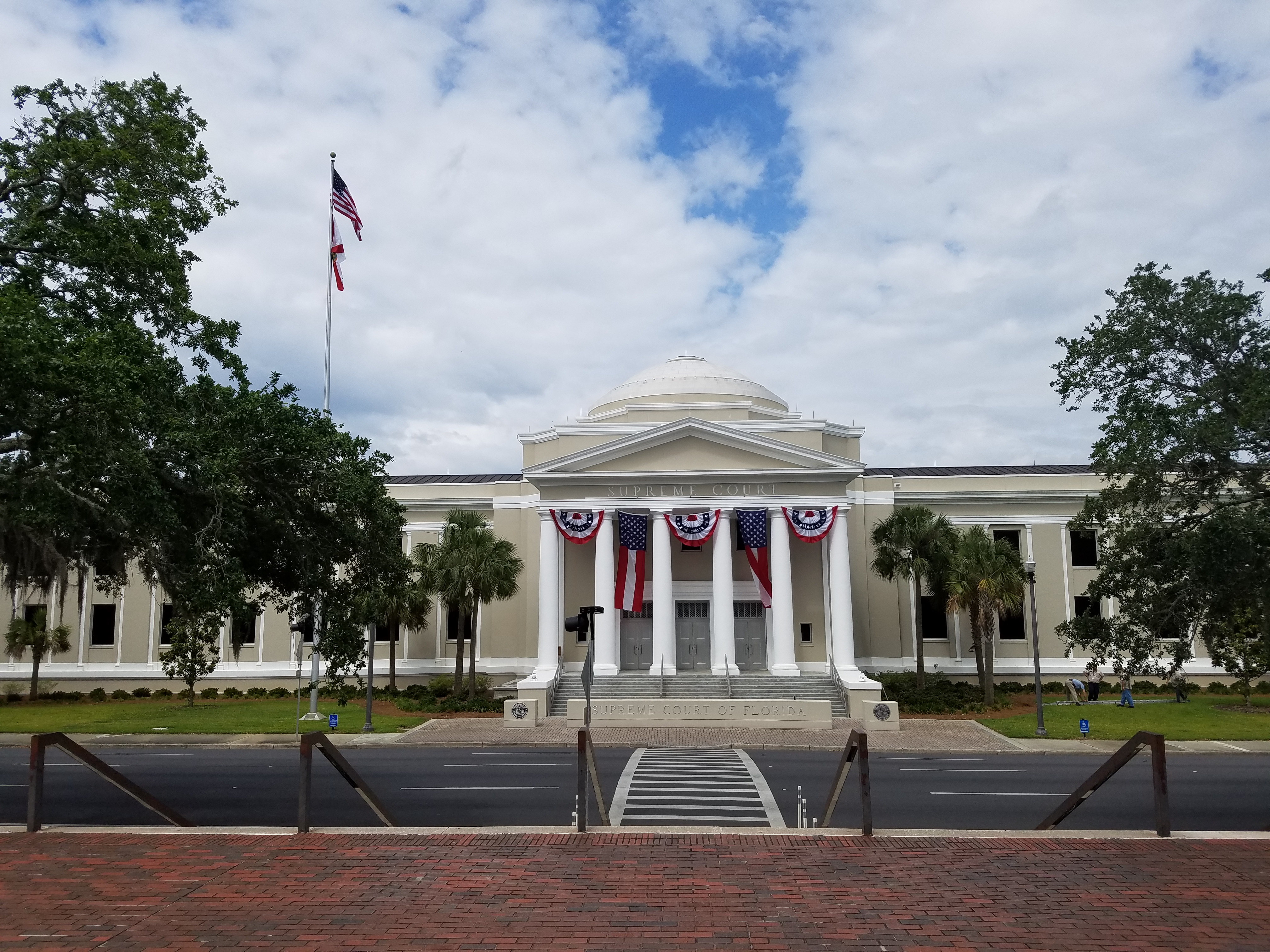In 4-1 decision, the Florida Supreme Court ruled that the ballot summary of the Ban on Semiautomatic Rifles and Shotguns Initiative was misleading. Ban Assault Weapons NOW is sponsoring the measure targeting the 2022 ballot.
The measure would ban possession of semiautomatic rifles and shotguns, with certain exceptions involving registration requirements. The measure would define Semiautomatic as “any weapon which fires a single projectile or a number of ball shots through a rifled or smooth bore for each single function of the trigger without further manual action required.” Assault weapon would be defined by the measure as “any semiautomatic rifle or shotgun capable of holding more than 10 rounds of ammunition at once, either in a fixed or detachable magazine, or any other ammunition feeding device.” If a person lawfully owned an assault weapon before the measure’s effective date, their ownership of such weapon would still be legal (a) for one year after the measure’s effective date or (b) after the owner registers the weapon by make, model, and serial number with the Florida Department of Law Enforcement. Records of such registration would be available for federal, state, and local law enforcement agencies.
On July 26, 2019, Florida Attorney General Ashley Moody (R) filed a motion with the state supreme court arguing the measure’s ballot language was misleading and unclear and that the initiative should be blocked from the ballot. Moody argued, “The ballot title and summary do not inform Florida’s electorate that virtually every lawful owner of a semi-automatic long-gun will be forced to register with the Florida Department of Law Enforcement, or that this registry would be available to all local, state, and federal law enforcement agencies. Nor do the ballot title and summary state the time within which preexisting long-gun owners must register their firearms that meet the proposed amendment’s definition of ‘assault weapon’ and avail themselves of the amendment’s grandfathering provision.”
In its decision released on June 4, the Florida Supreme Court agreed with Moody. The court wrote, “While the ballot summary purports to exempt registered assault weapons lawfully possessed prior to the Initiative’s effective date, the Initiative does not categorically exempt the assault weapon, only the current owner’s possession of that assault weapon. The ballot summary is therefore affirmatively misleading.” Judge Jorge Labarga dissented arguing that the 75-word limit was not enough to provide every detail of the initiative but that the ballot summary was still clear.”
Gail Schwartz, the chair of Ban Assault Weapons NOW, released a statement in response to the court’s ruling that said, “The Supreme Court, now controlled by the NRA in the same way as our Governor and our Legislature, has fundamentally failed the people of Florida. Not only has the Legislature recently made it harder to pass ballot initiatives, now the people must also face a Court of rightwing ideologues who will only approve initiatives they agree with politically.”
According to the Florida Secretary of State’s website, Ban Assault Weapons NOW had submitted 174,564 valid signatures. In order to obtain a spot on the 2022 ballot, proponents of the initiative would need to begin the process again with an amended ballot summary.
The total number of signatures required for an initiated constitutional amendment to qualify for the ballot is equal to 8% of the votes cast in the preceding presidential election. Florida also has a signature distribution requirement, which requires that signatures equaling at least 8% of the district-wide vote in the last presidential election be collected from at least half (14) of the state’s 27 congressional districts.
Additional Reading:


